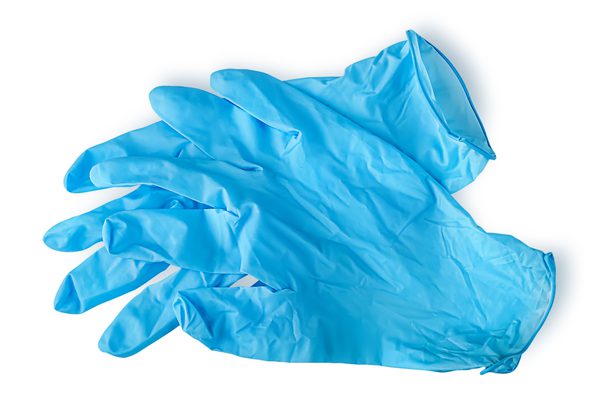Call to speak to a Licensed Insurance Agent
Mon - Fri 8am – 8pm EST; Sat - Sun 10am - 6pm EST

Because it can assist with many aspects of a person’s day-to-day life, durable medical equipment is an absolute necessity for many who get Medicare benefits.
Equipment, such as medical gloves, is necessary for people who may be in harm’s way without them. For example, some people need gloves to protect themselves from bacteria and viruses.
So a common question, if you have a need for medical gloves on a regular basis, is, “Does Medicare cover gloves?”
In this article, we answer the question in clear, plain English. You will also find the average medical gloves costs and other helpful info.
The short answer is no. In most cases, Medicare will not cover the cost of medical gloves. There may be some situations where you can get these costs covered. Below we’ll take a closer look at this to see when you might be able to get Medicare to pay for your medical gloves.
Original Medicare (Medicare Part A and Part B) does not provide coverage for medical gloves. So that means you will have to pay 100 percent for your medical gloves. Original Medicare does not provide coverage for disposable medical items.
This includes TPE, CPE, vinyl, latex, or nitrile gloves. Original Medicare also does not provide coverage for medical items such as incontinence pads, facemasks, or compression stockings.
That said, Original Medicare may provide coverage for rubber gloves in some situations. Original Medicare could provide coverage for your rubber gloves if they are considered medically necessary. Your healthcare provider must first order them for Original Medicare to provide coverage.
Coverage for rubber gloves, if approved, is provided by Medicare Part B. Medicare Part B considers rubber gloves as Durable Medical Equipment or DME.
Medicare Part B provides coverage for the purchase of rubber gloves, similar to providing coverage for other DMEs. However, just like what was stated earlier, it has to be medically necessary to treat certain medical conditions for Medicare Part B to provide coverage for purchasing your rubber gloves.
For Medicare Part B to consider the rental or purchase of rubber gloves to be medically necessary, it has to follow these certain conditions:
However, some Medicare Advantage plans (Medicare Part C) provide coverage for medical gloves. Medicare Advantage plans cover everything Original Medicare covers but also offer additional benefits. However, coverage and out-of-pocket costs will vary depending on your plan.
The cost of gloves depends on what type you get and how many you get. But, to give you an idea, you can get a box of 100 medical gloves for under $10 at many online retailers.
Original Medicare is a federal program run by the United States government that offers medical insurance to people living in the country who are at least 65 years old.
In addition, those who have been awarded disability benefits by the Social Security Security and those who have been diagnosed with ALS or ESRD are included in its scope of coverage.
Note: Medicare coverage changes all the time. And your specific coverage may vary from plan to plan for Medicare Advantage. Always be sure to double-check with your health care provider and/or Medicare insurance provider about what your plan covers and what it does not.
This article is part of our series on “What does Medicare cover?”
Also, you can check out other articles in this series, including: Does Medicare Cover Counseling for Anxiety?